Plenary & Keynote Lectures 2024
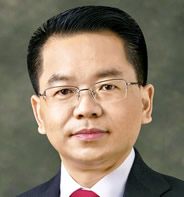
Regulation and intensification of mass-transfer and separation processes with micro-/nano-structured functional materials
Prof. Dr. Liang-Yin Chu
Membrane Science and Functional Materials Group – Sichuan University / China
Mass transfer and separation processes are important processes in many industrial fields such as chemical engineering, biomedicine and so on. The regulation and intensification of mass transfer and separation processes play a key role in the transformation of traditional technology and the development of new technology. By introducing the response behaviors of smart materials, it is possible to achieve the environmental regulation and intensification of mass transfer and separation processes, and it is one of the frontiers and hotspots in the interdisciplinary researches of chemical engineering and materials, chemistry, medicine and so on. How to construct novel mass-transfer and separation systems to break through the diffusion theory and enhance the membrane separation processes is still challenging in this field. By designing molecular-level structures and micro-/nano-structures,[1-5] we constructed responsive controlled release systems and smart membrane systems with smart materials, and pioneered the development of novel efficient smart membrane separation systems, responsive self-regulatory controlled release drug carriers with novel modes with the assistance of responsive smart materials. Thus, the difficult problems of molecular desorption in affinity membrane separations and the limited mass transfer momentum in carrier systems have been successfully solved, and the regulation and intensification of mass transfer and separation processes have been achieved. The results provide novel strategies for the regulation and intensification of mass transfer and separation processes for various applications. This presentation will introduce the recent development of stimuli-responsive smart functional membranes, including the design strategies and the fabrication strategies that based on introduction of the stimuli-responsive gates after or during membrane formation, the responsive models of versatile stimuli-responsive smart functional membranes, as well as the advanced applications of smart functional membranes for separating chemical/biological substances based on size or affinity, regulating substance concentration in reactors, and controlling release rate of drugs. With the self-regulated membrane performances, smart functional membranes show great power for global sustainable development.
Liang-Yin CHU is a Distinguished Professor of Chemical Engineering and a Vice President at Sichuan University in China. He received his Ph.D. degree in 1995 from Northeastern University. He was promoted as a full professor of Chemical Engineering at Sichuan University in 1997 and became Director of the Sichuan Provincial Key Laboratory for Filtration and Separation in 2001. He was a research fellow at the University of Tokyo (1999-2001) and a visiting scholar at Harvard University (2006-2007), ESPCI Paris (2007-2008) and the University of Birmingham (2011). He has authored and co-authored more than 500 peer-reviewed journal articles, 83 patents, 7 books and 19 book chapters. He has received many honors and awards, including Natural Science Awards issued by the Ministry of Education (2003) and Sichuan Provincial Government (2015, 2020), Distinguished Young Scholar issued by the National Natural Science Foundation of China (2008), Distinguished Professor of Chang Jiang Scholars Program issued by the Ministry of Education (2009), the Hou Debang Chemical Science and Technology Award – Innovation Award issued by the Chemical Industry and Engineering Society of China (2013), Fellow of Royal Society of Chemistry (2014), National Technological Invention Award (2018), Fellow of the Global Academy of Chinese Chemical Engineers (2021), the Ho Leung Ho Lee Foundation Prize for Scientific and Technological Innovation (2021), the Hou Debang Chemical Science and Technology Award – Achievement Award issued by the Chemical Industry and Engineering Society of China (2022), and Fellow of the Chemical Industry and Engineering Society of China (2022). His teaching and research are focused on mass transfer and separations, membrane materials and processes, microfluidics, smart controlled-release systems, and advanced functional materials.
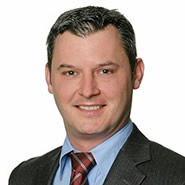
From process to operation: Digital twins for filtration
Dr. rer. nat. Ralf Kirsch
Fraunhofer Institute for Industrial Mathematics ITWM – Department of Flow and Material Simulation / Germany
When speaking of a digital twin, we usually think of a computerized, virtual counterpart to a device or process in the real world, allowing us to study and predict its performance under varying (operating) conditions. In filtration, a classical application is the computer-aided optimization of the design of a filter medium or element to reduce time and cost spent on the building and testing of prototypes. The relevance of such a digital twin for the prediction of the filter lifetime can be seen by the many works devoted to the simulation of flow and filtration from the microscopic length scale of the nonwoven to the macroscopic scale of the element. In the context of the fourth industrial revolution (industry 4.0), digital twins interacting with the real filter device through data exchange (will) play an important role, because they offer very interesting possibilities such as predictive maintenance, automatization of optimal operation and many more.
Obviously, a digital twin must reflect the relevant properties of the real device and therefore, one of the challenges is to identify what is relevant such that the required computational resources do not prevent a beneficial use. In this talk, we look at improving digital twins of filter elements by taking a more integrated approach with the focus on the filter media. More precisely, we consider a “chain” of digital twins, representing different stages the filter medium goes through: From “birth” (fiber laydown process), over “formation” (e.g. pleating) to “professional life” (operation in the filter element). The material property of major interest is the (non-)uniformity of the distribution of the fiber volume fraction. The fiber laydown process determines how “cloudy” the filter nonwoven will be, which influences the filtration efficiency of the flat sheet material. The pleating creates regions of compacted nonwoven material, where the flow resistance and filtration properties can differ significantly from the flat sheet. And in contrast to a quite common assumption of computer models, filter media are not rigid bodies, but they deform under the pressure of the fluid flow. Depending on the (operating) conditions, these deformations cannot be neglected in the digital twin of the filter element.
The talk presents examples of these digital twins together with the underlying models and algorithmic aspects. We will also discuss open questions and future perspectives.
Dr. Ralf Kirsch received his PhD with distinction in Applied Mathematics at the Department of Mathematics at Saarland University in 2004 and continued to work there as a postdoc in the field of kinetic theory and mathematical models for rarefied gas dynamics. He joined the Fraunhofer Institute for Industrial Mathematics (ITWM) in 2010 and has been working on modeling and simulation of filtration processes since then. In 2017, he became head of the filtration and separation group in the Department of Flow and Material Simulation at Fraunhofer ITWM. His research activities include the macroscopic modeling of filtration efficiency, the evolution of the media’s flow resistance, the influence of non-uniform material distribution on the filter performance, and the flow-induced deformation of filter media. In these fields, he has been involved in many national and international research projects. In addition, the group works closely together with the industry to enhance and accelerate the transfer of research results to the application in practice. He leads the development of simulation codes for flow, efficiency, and lifetime prediction of filter elements. He (co-)authored over 50 contributions devoted to models and methods for the simulation of filtration, separation, and deformable filter media. Past and present involvement in the filtration and separation community includes memberships of the scientific committee of the AFS and the ProcessNet specialist group for mechanical (solid-)liquid separation.
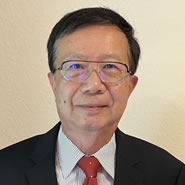
How filtration and separation impact global sustainability
Dr. Wu Chen
USA
Sustainability is a global effort to make our world better for ourselves and can sustain for future generations. The scope is so large and with tremendous challenges, so it needs to be a global effort and requires the participation of all industries. In this presentation, we will specifically look at the role of filtration and separation technologies in this global effort and how filtration and separation industry can contribute.
Key sustainability efforts are in carbon reduction, renewable materials, circularity, water and more. For carbon capture and reduction, amine filtration, membrane separation, and sorbents adsorption play very important roles. In the production of renewable materials, key challenges are often in the solid/liquid separation. To achieve circularity, filtration and purification of recycled materials are also challenging. Global water shortage makes water a key sustainability focus, either raw water supply, wastewater treatment, or water reuse, filtration and separation again are playing critical roles and the need for better technologies is ever growing. Overall, in all sustainability efforts, filtration and separation are crucial for reaching the sustainability goals.
Dr. Wu Chen was an R&D Fellow at Dow before he retired in 2023 after 35 years of service. He has extensive industrial experience in engineering and process sciences, especially in solid-liquid separation and gas/air filtration. He also has expertise in project management, process design, plant startup and operation. His recent focus has been in sustainability which includes carbon capture, plastic circularity, and water sustainability.
He has been very active in technical communities. He constantly contributes to Journal articles and books including the Perry’s Chem. Eng. Handbook. He has also been invited as the Plenary or Keynote speaker at major conferences such as AFS Conferences, AIChE conferences, World Filtration Congresses and more.
He had served as the chairman of the American Filtration & Separation Society (AFS), board of directors, conference chairs, local chapter officers and currently leads the education efforts of AFS. He was awarded AFS Frank Tiller Award for outstanding technical achievements, AFS Well Shoemaker Award for leadership and service to the filtration industry and Fellow Member Award for sustained significant contributions to fluid/particle separation technologies and filtration industry.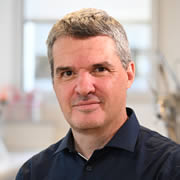
Formation and separation of flocculated suspensions: Good practices and challenges for laboratories and industries
Dr.-Ing. Pascal Ginisty
IFTS – Institut de la Filtration et des Techniques Séparatives / France
Flocculation is a common operation for urban and industrial wastewaters and sludge treatment. Analysis and models are mainly devoted to elementary particles whereas the flocs, usually poorly known and little characterized, are the physical objects treated in separation devices. Operators of sewage treatment plants have to adapt daily the conditions to water/sludge variability but owing to a lack of knowledge on chemical conditioning mechanisms and flocs behavior, the adaptation remains usually crude and poorly mastered. A better knowledge of their generation, properties and behavior under constraints in separation processes is required for works design and performances optimization. The presentation will review existing practices to form and measure intrinsic and behavioral flocs properties with standardized methods or original techniques, will describe particle agglomeration mechanisms and point out the importance of mixing conditions and their environment, will point out the necessity for models to take into considerations particles agglomeration and flocs break-up under constraints and the water release in the spaces between end inside flocs and the required multiscale approach. The challenges for scientists and industrials are a better identification of key parameters at micro and macroscale ruling flocs formation and separation processes, a better quantification of constraints undergone by flocs in industrial machines, the adaptation of existing separation models to flocs properties, and the possibility to replace, partially or totally, chemical products by bio-sourced products to reduce the environmental impact of coagulation / flocculation.
Dr. Pascal Ginisty received his diploma in Process Engineering in 1994 (National School of Chemical Engineering of Nancy) and pHD in chemistry in 1999 (Commissariat of Atomic Energy – Cadarache). He has worked as process studies manager for IFTS (Institute of Filtration and Techniques of Separation) since 2000 and performed more than 500 studies of liquid solid separation topics (liquid clarification, solid concentration) for industrial customers of different areas and became a few years ago the Scientific Director of IFTS. His collective research activities are mainly dealing with sludge flocculation, thickening and dewatering, concentrated suspensions treatment and high value molecules extraction. He’s author or co-author of around 50 scientific papers on these topics. He’s involved since 2005 in sludge standardization activities and became the chairman of ISO TC 275 “Sludge recovery, recycling, treatment and disposal” at the beginning of this year . He is a member of organization and/or scientific committees of scientific congresses (ECSM, Francofilt, Filtech, FPS, IWA, WFC14) and is the secretary of the French filtration society (SF2P).
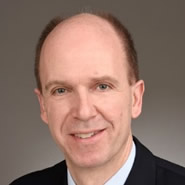
Membrane technology – New developments, challenges, markets and applications
Prof. Dr. Steffen Schütz
Stuttgart University IMVT & MANN+HUMMEL / Germany
During the last decades membrane technology has become a key technology in filtration and separation applications. The global water economics and mainly the global drinking water supply is based on efficient membrane processes to ensure clean water for consumption. Industrial separation processes in the food & beverage segment, in chemical processing and in all fields of biotechnology rely upon membrane technology as membrane processes treat value products and molecules with high care compared to other separation technologies. The global transformation to green energy resources requiring new energy supply and storage systems like fuel cells, electrolysis and new battery concepts depends on innovative membrane technology.
This presentation will provide an overview about latest innovations and new applications in membrane technology and about future potentials for enhanced membrane products. New membrane materials and material combinations are enhancing membrane applications with higher efficiency on the one hand and with increased separation selectivity on the other hand compared to current state-of-the-art. Specifically modified membranes become highly selective for separation of single target molecules. Modern coating technologies and multi-component material recipes will enable enhanced membrane applications with high operational robustness and attractive economic potential soon. A lot of these innovations are currently driven by start-ups, which offer an enormous innovation potential for transfer and exploitation into industrial scale.
Apart from increased membrane performance and robustness, sustainability aspects play a significant role in membrane innovations. The term “sustainability” refers to future-oriented membrane applications as well as to membranes produced from sustainable, green materials. New environmentally friendly solvents and polymers offer enhanced market potentials for membranes. The ongoing discussions about PFAS molecules contaminating water are pushing these developments. This is especially valid with respect to ion exchange membranes for energy-related applications.
Additionally to the membrane media themselves, the design of membrane modules is a key aspect for safe and economic membrane processes. New types of membrane modules allow a flexible operation and high cleaning efficiencies. Membranes themselves can be specifically designed for an easy integration into modules considering specific application conditions and providing guarantee for long-term operation.